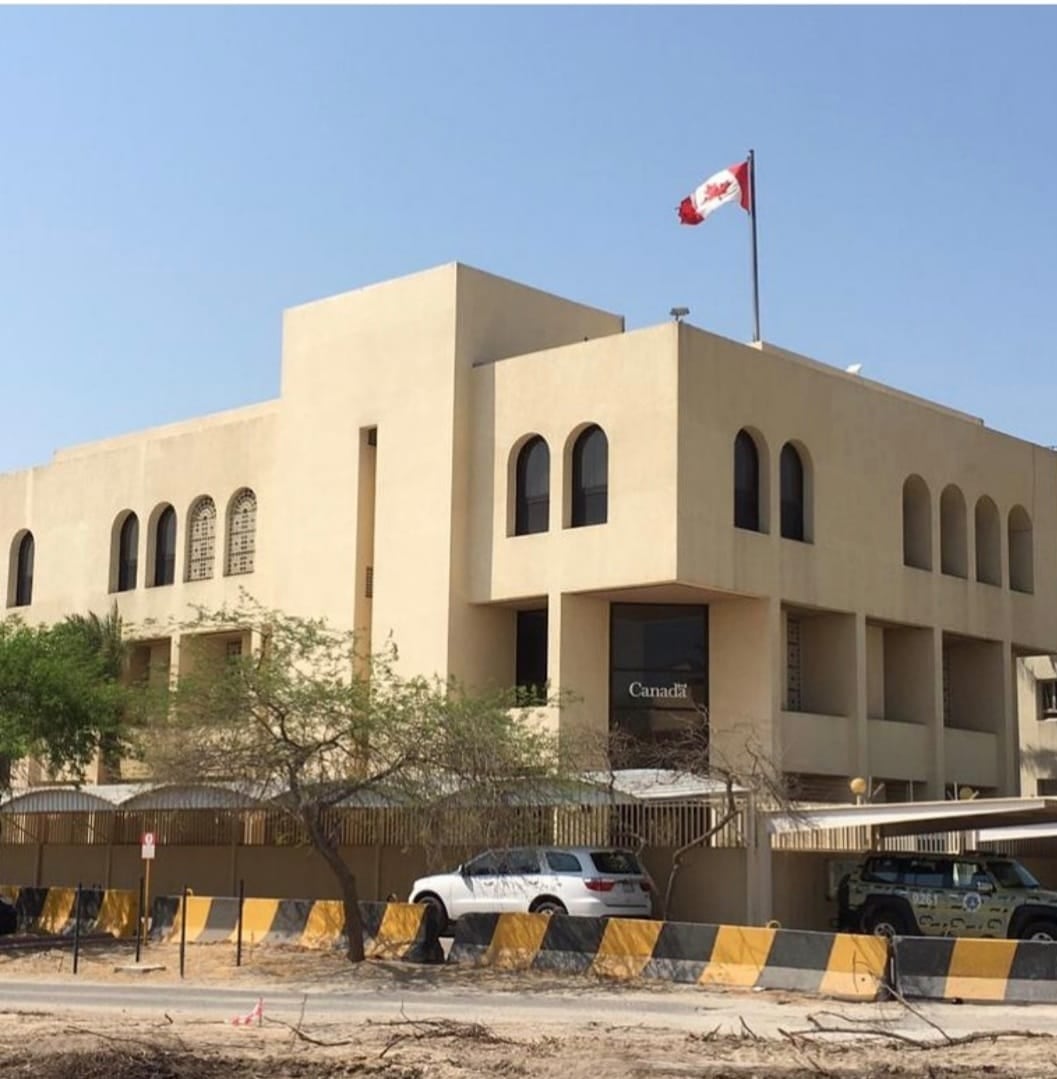Minority rights advocates say the case of a former diplomat who had to appeal to the Federal Court to force her employer to investigate her discrimination complaints underscores the need to reform whistleblower protection in the public service at Global Affairs Canada.
Nearly four years after her deployment to Kuwait, Madina Iltireh’s version of what took place at the embassy there has finally been heard.
According to Global Affairs Canada’s (GAC) investigation report, a copy of which was obtained by Radio-Canada, four of her eight allegations against Canada’s former ambassador to Kuwait were determined to be founded.
But the report made no specific recommendations.
“But still I don’t see any apology,” Iltireh said. “I need the department [to] show me change, that these kinds of things improved, that these kinds of things will never happen again.”
She now wants to be compensated for her experience.
I went through hell.– Madina Iltireh, former Canadian diplomat
GAC told Radio-Canada that it cannot comment on individual cases, “or those for which certain steps are or may be underway.”
The department added in French that it “applies a zero-tolerance policy towards any form of misconduct or wrongdoing.”
Canada’s former ambassador to Kuwait wrote in French that “it is preferable not to comment while a process is ongoing.”
A difficult assignment
Iltireh, who is Black and wears a hijab, arrived in Kuwait in the summer of 2018 to work as an assistant to the ambassador. She said the discrimination began soon after.
In a written complaint filed with GAC, the former diplomat said she “was the victim of sustained and repeated incidents of racial harassment, discrimination, and intimidation” during her three-year term in the country.
The department’s investigation found that Iltireh had difficulty adjusting to her new job and was not meeting performance targets, particularly due to her lack of diplomatic experience.
But evidence filed as part of the investigation suggests Iltireh asked for help on several occasions.
Several witnesses interviewed by GAC portrayed the situation as “a labor conflict” that developed “for various reasons.”
They “felt that Madina Iltireh’s tone was inappropriate, that she was excessively dependent on their assistance to carry out her duties, that she had a language barrier, and that she was unfriendly,” GAC found.
“This led [some] to speak unkindly of [her], which led to strained relations,” the report stated. That, in turn, caused Iltireh to feel ignored and ostracized.
The investigation concluded that by failing to take action to resolve the situation, the ambassador “encouraged and tolerated” bullying and discrimination in the workplace.
The ambassador, who now works in a different country, “failed in his responsibility to ensure that Madina Iltireh worked in a healthy work environment,” the report found.
Iltireh said the experience has had a lasting impact on her mental health and self-esteem. She said she developed anxiety and her memory failed, leading to mistakes.
“I went through hell,” she said. “I have to work hard to gain back what I lost, but I’m still working on it.”

Toward the end of her stay in the Middle East, Iltireh said she was denied access to the embassy’s secure area.
That decision by the ambassador was made “without any reason” and also constituted discrimination, according to the GAC report.
Poor living conditions
The ambassador also failed to ensure a safe living environment for Iltireh and her family, the report said.
She confirmed to Radio-Canada that the official residence in Kuwait was poorly maintained, including an air conditioner that failed multiple times, an overhead light that fell onto a dining table, prolonged washing machine breakdowns, and electricity and internet interruptions.
According to the report, Iltireh’s requests for maintenance and repairs were not handled “diligently.” Some requests she made in 2019 weren’t addressed until 2021.
When Iltireh returned to Canada she tried to file a formal complaint about her experience, but said she encountered barriers.
“From the beginning, they said there was no need to investigate. But who was punished? It was me!” she said.
In May 2022, she finally filed a complaint with the GAC’s values and ethics department, but it was rejected.
In September 2024, she took her case to the Federal Court of Canada, describing the “mental torture” she believes she suffered and denouncing the lack of a “full and fair” investigation.
In its decision, the court ordered GAC to investigate.
‘Not an isolated case’
Career diplomat Tariq Gordon supported Iltireh throughout her ordeal. He said she’s “not an isolated case.”
Radio-Canada spoke with other GAC employees who said they are either experiencing or have experienced similar discrimination at work and have begun the complaint process.

After a number of “serious incidents” abroad, Gordon said he co-founded a peer support group three years ago. More than 50 public servants and diplomats joined.
Gordon believes GAC is committed to combating discrimination and racism, but said the department often falls short in how it responds to complaints and allegations.
“There are so many people, so many stories that people have. It’s not an isolated incident,” Gordon said.
GAC mulling new complaint process
GAC said it’s required to comply with the federal government’s workplace harassment and violence prevention policy.
“For all other types of allegations of alleged misconduct, competent internal investigators are trained to conduct administrative investigations in a professional and impartial manner, respecting the values of procedural fairness and natural justice, and have the required knowledge of the relevant laws,” the department stated.
In the most recent annual report on GAC’s handling of misconduct and wrongdoing cases, deputy ministers said they’re studying “the possibility of developing a standardized complaint intake model to help employees find appropriate recourse.”
GAC said the annual report constitutes “a key element of transparency” and is part of its commitment to “fostering a healthy, respectful, transparent, and inclusive work culture and to transforming organizational culture and workplace well-being.”
Foreign Affairs Minister Anita Anand’s office declined to comment.
A ‘broken’ system
Nicholas Marcus Thompson, president and CEO of the Black Class Action Secretariat, believes GAC’s whistleblower system is dysfunctional and needs to be overhauled.
“The system is broken on these issues,” he said.

The group’s class-action lawsuit has not yet been certified by the Federal Court.
Thompson said the revision of the Employment Equity Act, promised in the 2024 federal budget, “would make discrimination the exception rather than the norm.”
Both Gordon and Thompson are calling for the creation of an independent, impartial investigation process to address cases of discrimination.
Thompson pointed to efforts to modernize the Employment Equity Act as a sign of progress. The federal government began revising the act in 2023, but has yet to introduce formal legislation to amend it.
Iltireh said she hopes no one has to go through what she did.
“Hopefully, the ministry will change or help the people who are coming after me, and things like my experience will be a lesson for everybody,” she said.
www.cbc.ca (Article Sourced Website)
#diplomat #speaks #Federal #Court #intervenes #discrimination #complaint #CBC #News
